“Something new… honey … perfumed with a flavor that drove the senses wild with pleasure. It seemed to Hera that when she took a spoonful the scent of the loveliest meadow flowers and mountain herbs danced and hummed inside her mouth.” 1

As liquid folds of honey curled onto thick Greek butter spread on a slab of whole grain bread a hint of herbs was in the air – fresh thyme. The nose reveled in the aroma even before it pleasured the palate.
Honey, its recipe is known only to the bee. Its infinite variations of flavor and color are provided by the bounty of nature’s herbs and flowering plants. On the Cyclades Island of Kythnos the hillsides are blanketed with wild thyme and a plethora of other herbs keeping both kitchens and thousands of honeybees happy.

Honey, and its mother bee, Mellissa, won an Olympian culinary competition and this nectar of the gods captivated the world.2
Kythnos Island, Greece, Machachi, Ecuador and Shawnee-on-Delaware, USA have one reality in common. Thanks to the patronage of nature they produce flavorful honey, but more important, ΕΡΓΑΣΤΗΡΙΟ Η Μελισσενια, Gabriela and Erin know existence cannot continue without the honeybee.
Greece: Beekeeping Laboratory Melissania

ΕΡΓΑΣΤΗΡΙΟ Η Μελισσενια (Beekeeping Laboratory Melissania) is nestled in a steep mountain valley of the small Aegean island of Kythnos. Although the wild thyme is in full bloom in springtime covering the hillsides, a plethora of wild herbs and flowers provide plenty of pollen from plants untouched by pesticides. Family owned Beekeeping Laboratory Melissania has over 450 hives in several island locations.
Everything connected to beekeeping is done in-house including building the hives. Each box can contain 70,000 to 80,000 bees and produce 45 pounds of honey. Harvest is after July 15 when the flowers die.
The Cyclades Islands are world famous for the production of themari – wild thyme honey. On Kythnos to be labeled themari it must be certified greater than 16% thyme honey. Beekeeping Laboratory Melissania’s themari honey is certified greater than 75%.

The processing of honey, like all foods, is done with medical sanitation. Stainless steel machines cut open the wax sealed trays from the hive and an extractor drains the honey. It’s collected in stainless steel pans and a strainer collects the wax.
The honey is double filtered and then placed in tall stainless-steel tanks for 10-12 days before bottling. The beeswax is used to make candles (a requirement for Ecclesiastical candles) and to coat the recycled screens. The hives are restored, repaired or wood recycled for new ones. The entire operation is powered with solar energy.
Ecuador: Bee Farm Ugshapamba
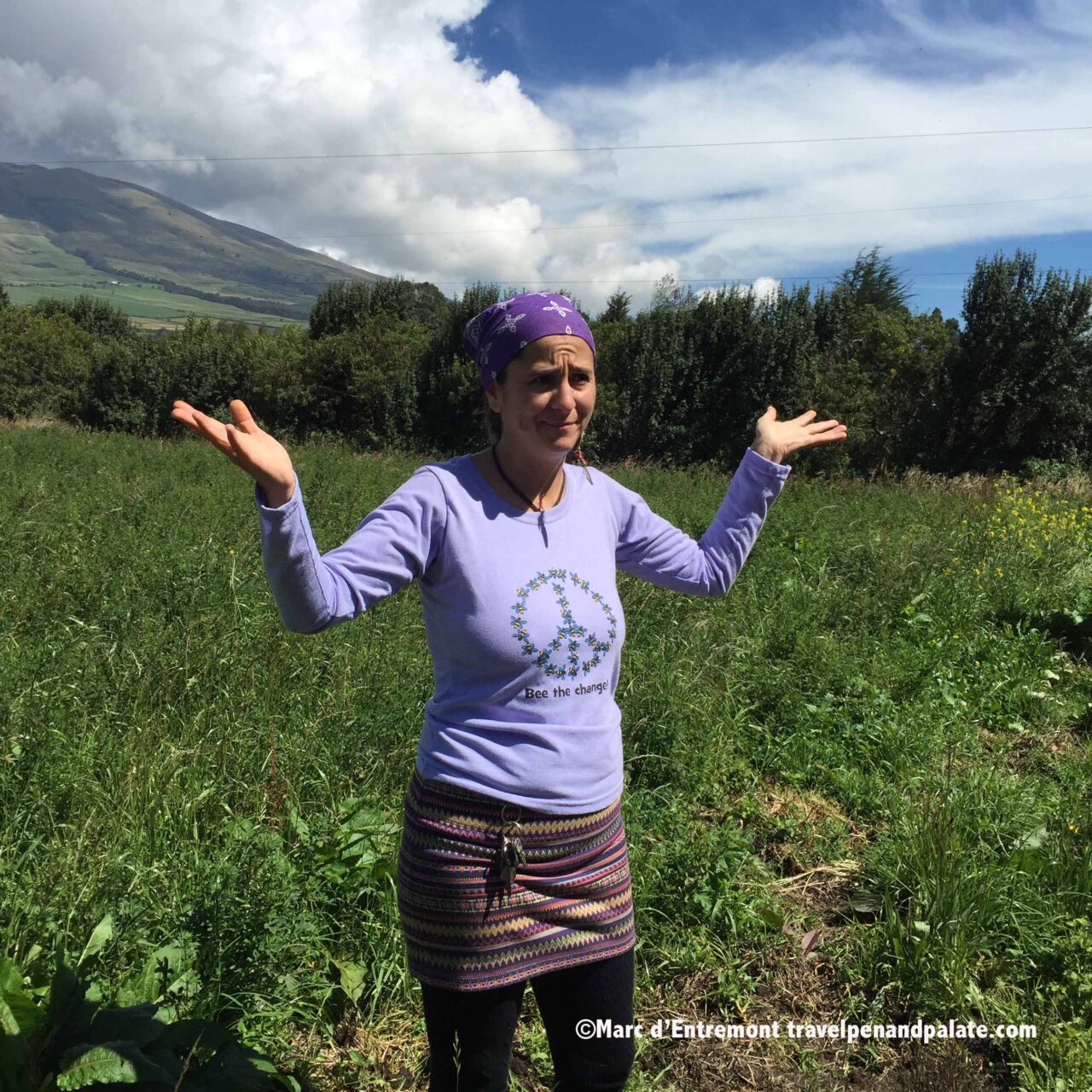
We have to “reconnect with our basics” and with “feminine energy that radiates from the Pacha Mama (Mother Earth),” Gabriela Romero gestures with open arms framing the photo perfect green fields, blue sky, white clouds and volcanoes that sustain fertile rural Ecuador. “Feminine energy” drives the beehive says the owner of Bee Farm Ugshapamba located just south of Quito near Machachi. Being surrounded by an abundance of both planted clover and wild sources of pollen must drive the hive as well.
Gabriela Romero is a third-generation heir to the family hacienda outside Machachi about 20 miles south of Quito in Ecuador’s volcanic Andean Highlands. She has transitioned this once traditional crop and dairy operation into Bee Farm Ugshapamba. Her belief is that traditional large-scale agriculture is not environmentally sustainable. Its dependence on chemical assistance, Gabriela insists, has caused the bee crisis facing the globe today.
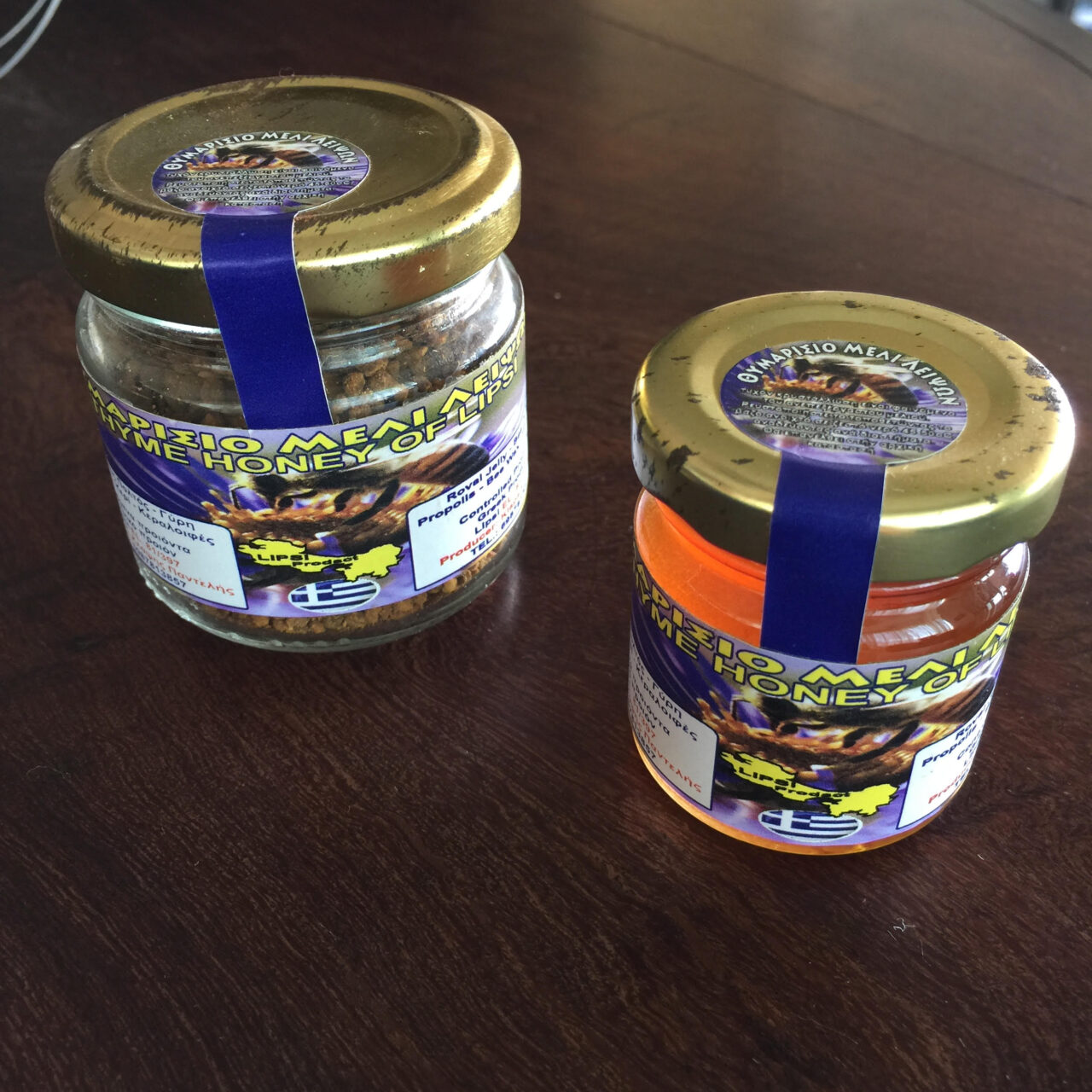
The drastic and deadly diseases causing devastation among honeybee colonies threaten the very food supply on which much of life depends. Bee Farm Ugshapamba is still a family enterprise working to promote “Conscious Tourism” through “apitourism.” Honey is certainly available in the hacienda, but so are natural derivatives such as bee pollen, nectar and royal jelly that can be part of apitherapy – natural “well living” – using bee products as one portal to reconnect with the Pacha Mama.
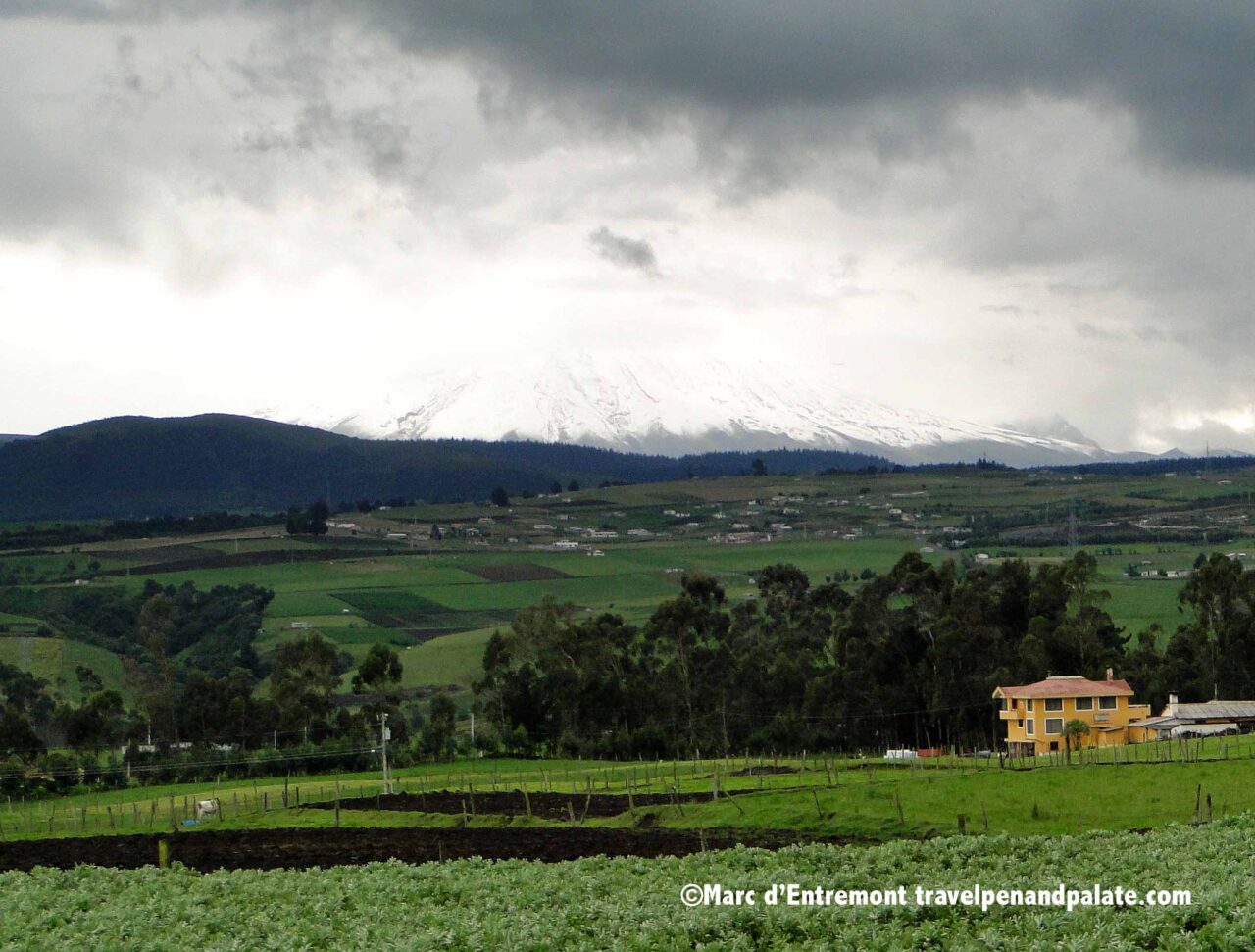
Bee Farm Ugshapamba is a frequent stop arranged by Quito tour companies and Tren Ecuador on day excursions through the countryside to El Boliche National Park on the Tren de los Volcanes. At the farm’s educational center apiary guests observe the workings of a hive, are introduced to bee biology and behavior, the importance of biodiversity and “well living” for both bee and human survival.
USA: Shawnee Inn and Golf Resort, Shawnee-on-Delaware
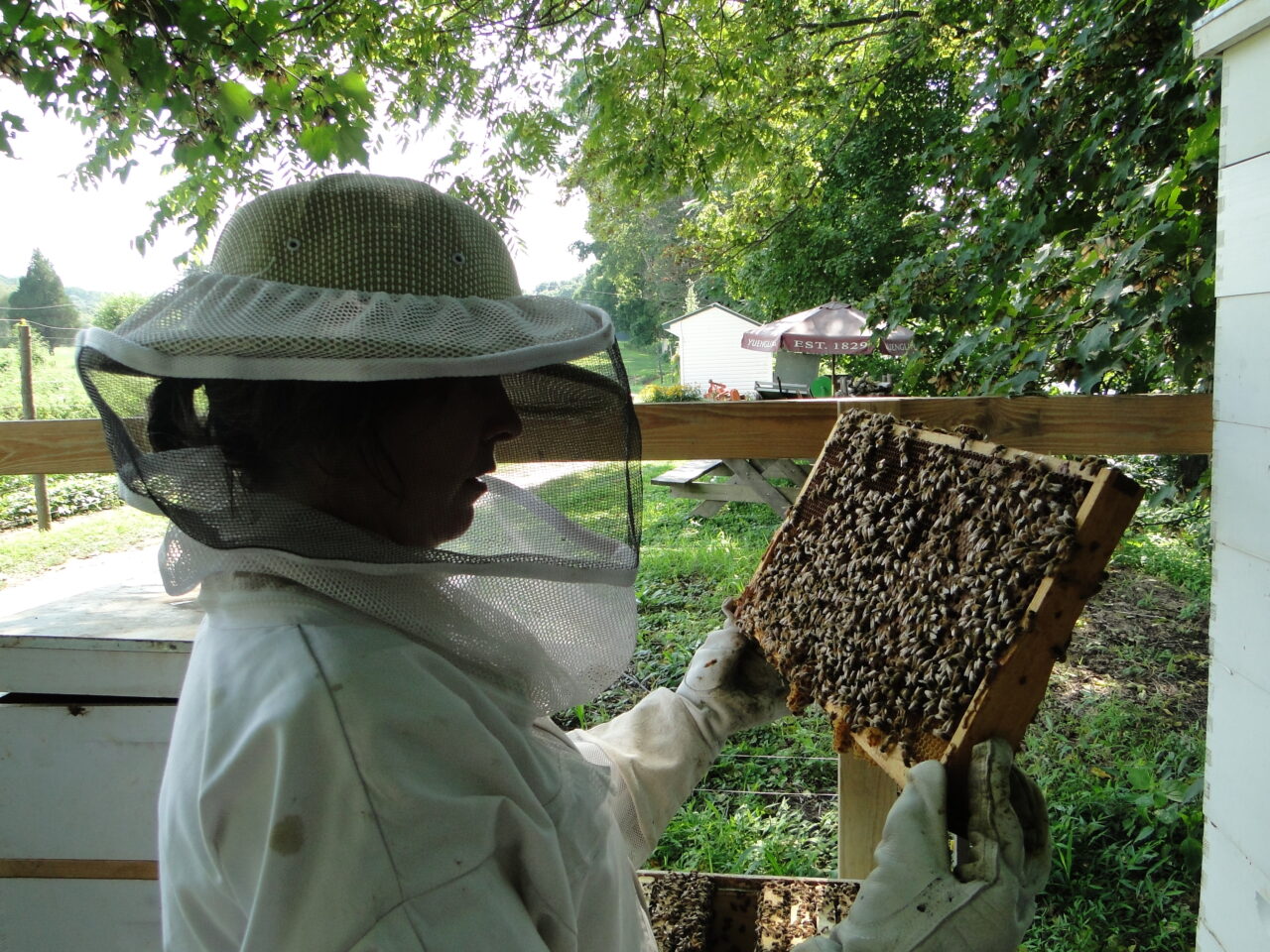
A historic and manicured golf course at a famous century old Pennsylvania Pocono Mountain resort is not the common site for an apiary. Except it’s a perfect fit with the Kirkwood family philosophy. Since 1977 the Shawnee Inn has been positioned at the forefront of environmental and local sourcing movements that are only now common practice.
The apiary at Shawnee Inn and Golf Resort is fascinating for its accessibility. Shawnee’s honey is a mix of abundant wild flowers that grow in the area as well as cilantro, lavender, mint and thyme Erin’s planted around the hives. Thyme is especially known for repelling mites, a bee’s most deadly enemy.
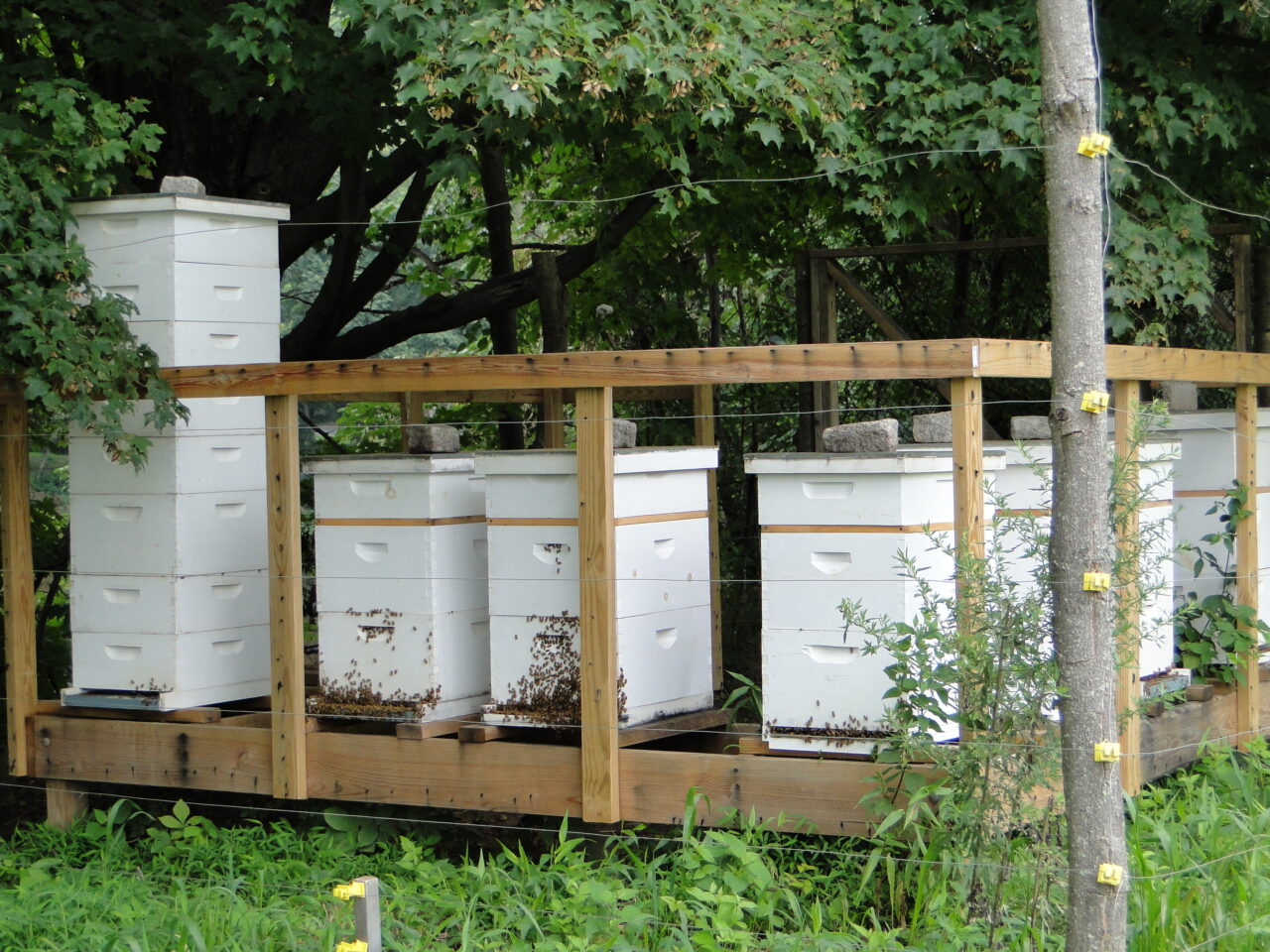
Shawnee provides an uncommon education for the guests who can see the beekeepers working the hives since one of the two locations is right next to the Recreation Center on the banks of the Delaware River. The resort provides guests with apiary tours and educational seminars on its active involvement in sustainable agriculture. The golf course apiary is next to the resort’s 3,000 square foot organic farm that supplies its three restaurants and must please the bees.

Each was a beautiful sunny day in Ecuador, Greece and Pennsylvania for the visits to these three apiaries, but they shared an intense respect for Mother Earth stronger than sunlight. They all enjoyed their work yet always in the back of the mind was the question of survival. The bees are not interested in the fact we humans find honey delectable. Their job is to perpetuate life for generations of bees.
We know that only through bee pollination will the global food system remain secure. At Beekeeping Laboratory Melissania they make and sell a drink of tsipouro (a clear distillation from grape mash) honey and thyme. It’s appropriate to raise an imaginary glass and toast to the success of the apiary at Shawnee Inn and Golf Resort, Bee Farm Ugshapamba and Beekeeping Laboratory Melissania. It’s more than selling honey; it’s perpetuating through example how to “Bee the Change.”

Travel with Pen and Palate every month to Greece and the world in the Hellenic News of America
Special Thanks: the author was a guest of Quito Turismo, Shawnee Inn and Golf Resort and the Municipality of Kythnos Island.
footnotes:
1 Mythos, Stephen Fry, Penguin Books, 2017, pp. 76 – 77
2 Mythos, Stephen Fry, Penguin Books, 2017, pp. 79 – 80







